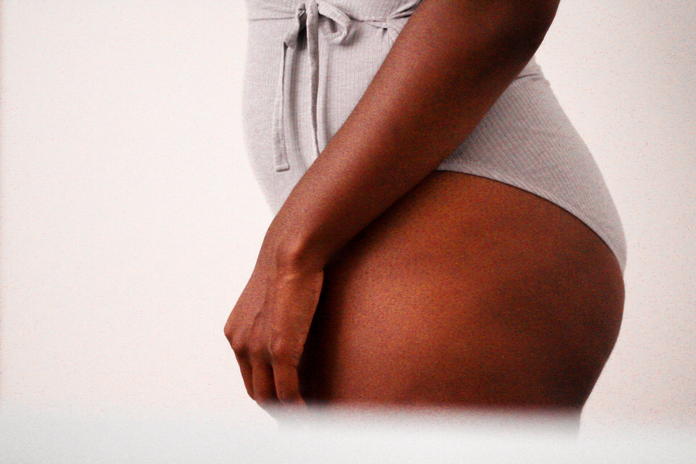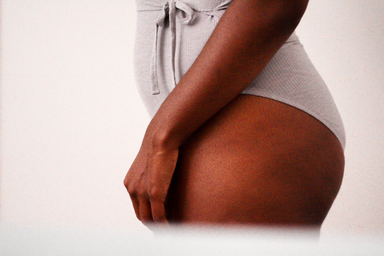Caster Semenya is a Black South African middle-distance runner and two-time Olympic Gold medalist whose natural body has been making waves in the sports world for years.
Semenya is no stranger to bigotry.
Semenya has a naturally high level of testosterone, which Harvard Health Publishing defines as “…the major sex hormone in males [that] plays a number of important roles, such as:… Muscle size and strength.” Her elevated testosterone levels have led to her being scrutinized throughout her entire athletic career.
When Semenya won an 800-meter world championship in 2009, fellow competitor Elisa Cusma (who placed sixth) stated, “For me, she’s not a woman. She’s a man.” Criticisms of her “masculine physique” caused World Athletics, formerly known as the I.A.A.F., to pass policies restricting the participation of women with high levels of testosterone above 10 nanomoles per liter from competing in their competitions unless they removed their internal testes or took drugs to lower their hormone count.
Recently, on Sept. 8, Semenya lost her appeal against the Court of Arbitration for Sport (CAS) in a Switzerland supreme court. The ruling agreed with World Athletics’s decision to force female athletes to lower their testosterone levels at least six months prior to a competition in order to participate.
This means that in order for Semenya to compete in the 2020 Olympics and defend her title, she must take evasive hormone-suppressing drugs. “I… refuse to let World Athletics drug or stop me from being who I am,” Semenya shared via a statement from her attorneys.
The Decisions are Discriminatory in Nature
The rulings by the Court of Arbitration for Sport and World Athletics are outrageously hypocritical. Answer me this, why is Olympic gold medalist Michael Phelps praised for producing half the amount of lactic acid (the substance produced by the human body that causes fatigue) than his competitors, having double-jointed ankles that bend 15 percent more than his adversaries, a disproportionately long torso with regards to his leg size, and a wingspan three inches more than his height –all advantages in the world of competitive swimming-, but Semenya is demonized and punished for naturally creating more testosterone than her rivals?

In the International Olympic Committee’s Anti-doping Rules for the 2020 Tokyo Olympics games, it is stated that “An anti-doping rule violation occurring during or in connection with the ‘Olympic Games Tokyo 2020’ may… lead to Disqualification.” This ironically occurred in the 2012 Olympic Games to gold medalist Mariya Savinova who was stripped of her title, promoting Semenya to 1st place. Forcing Semenya to take hormone-suppressing drugs is immensely contradictory and humiliating. In a sense, she would be doping to give herself a disadvantage in the competition.
However, the masculinization of Black women is nothing new. It’s just getting old.
The Court of Arbitration for Sport and World Athletics’s decisions have deep-rooted racial undertones. The media has an extensive history of perpetuating the masculinization of Black women. Examples of this range from the old Hollywood standard of beauty declaring that white skin is feminine, attractive, and dainty while dark skin is manly, unappealing, and crude, to caricature depictions of Former First Lady, Michelle Obama, and tennis champion, Serena Williams, with overly masculine features.
In recent news, people have justified how Houston rapper, Megan Thee Stallion, was shot by alleged boyfriend, Tory Lanez, and compared her to a man. Retired rapper Cam’ron came under fire for sharing an Instagram post that read, “Tory Lanez saw that dick and started shootn… IDC what no one say.” Megan’s curvy figure and 5-foot-10-inch stance are both characteristics used to masculinize her.
The masculinization of Black women is also made apparent in the dating world. Black women are seen as less attractive than any other race of women. In a since-deleted blog post, OkCupid shared statistics from its dating app that indicates that Black women are the least desired group of women among their straight male users. This can be attributed to the stereotype that Black women are unfeminine when compared to their counterparts of other racial groups. The beauty standard, still to this day, is very Eurocentric in nature. If a woman doesn’t fit within this criterion -which the majority of Black women don’t- they are regarded as unattractive by society.

The treatment of Semenya by the world should be marked as ill-advised, crass, and unjust. She has spent her entire life defending her womanhood—something that no one should have to do. Femininity has no set rule book to follow. There isn’t a certain way a woman should dress, a certain way a woman should look, or a certain way a woman should carry herself. The policing of women’s bodies, specifically Black women, is a prehistoric practice that should be abolished immediately. Sojourner Truth said it best in her famous 1851 speech at the Women’s Rights Convention in Akron, “Ain’t I a Woman?”



